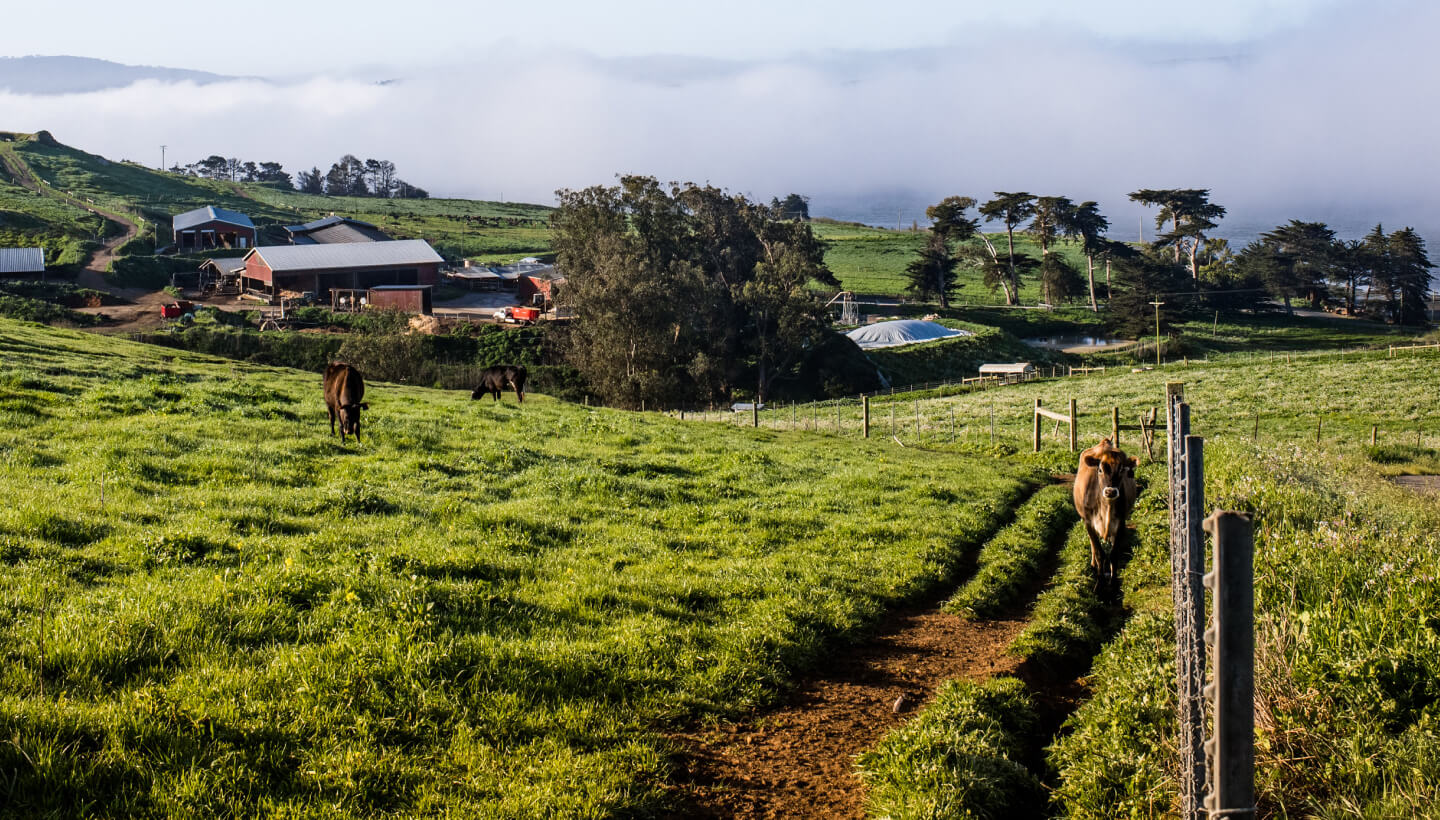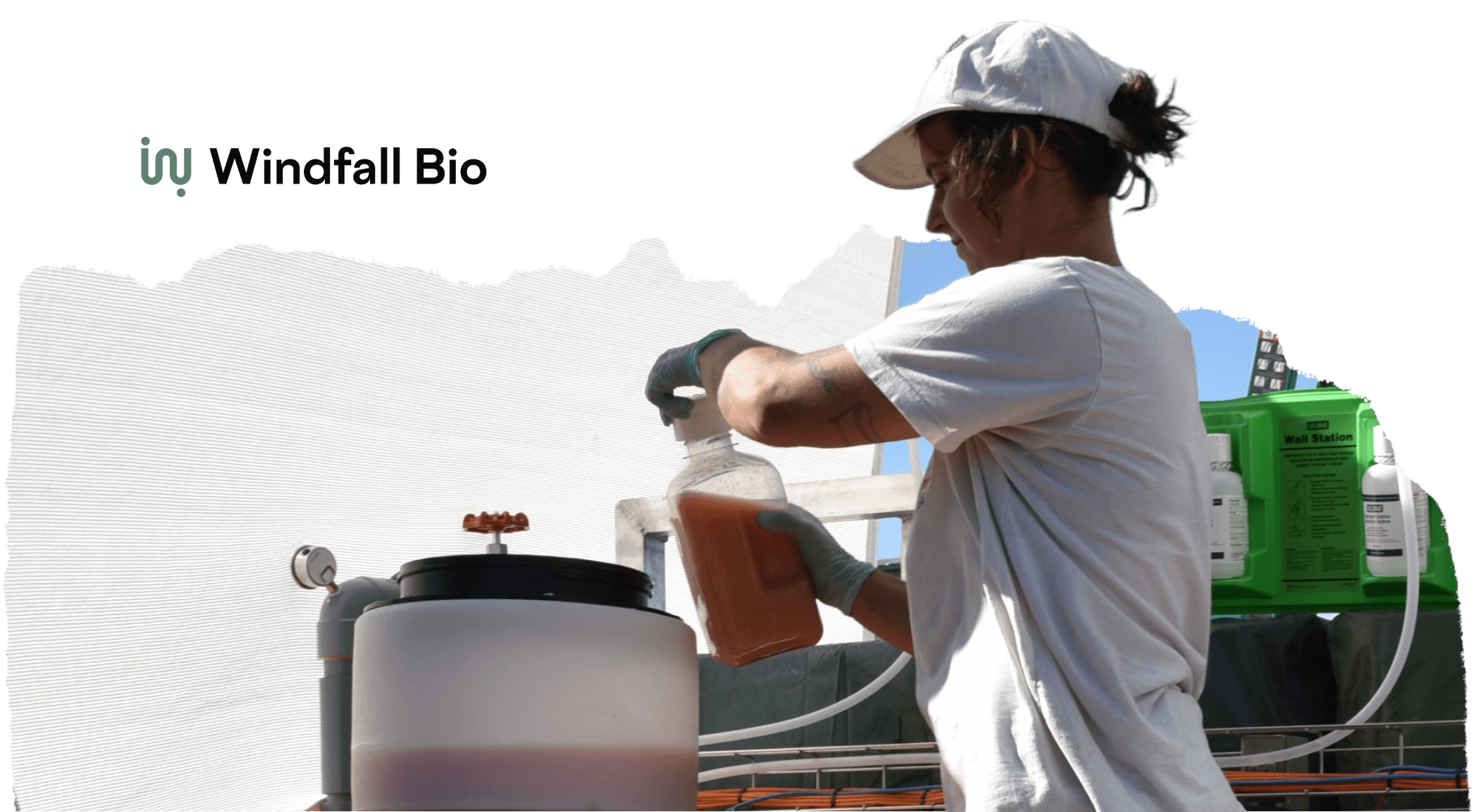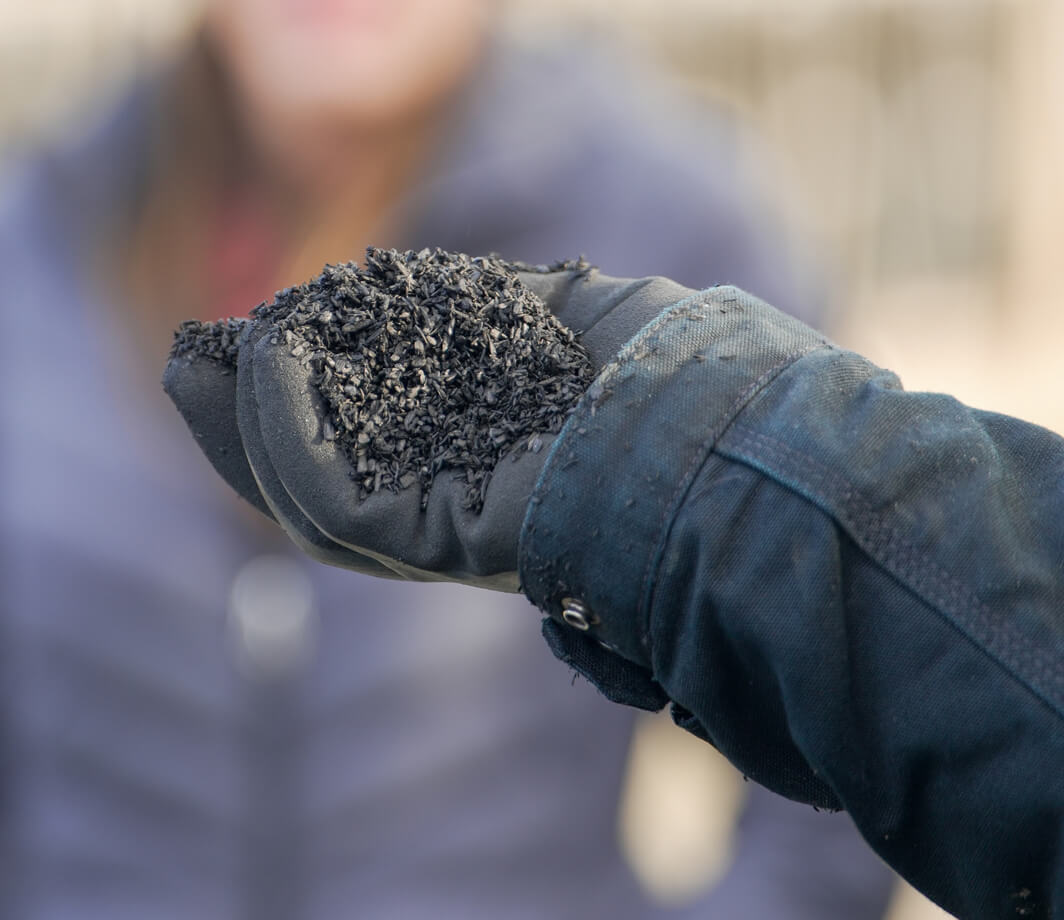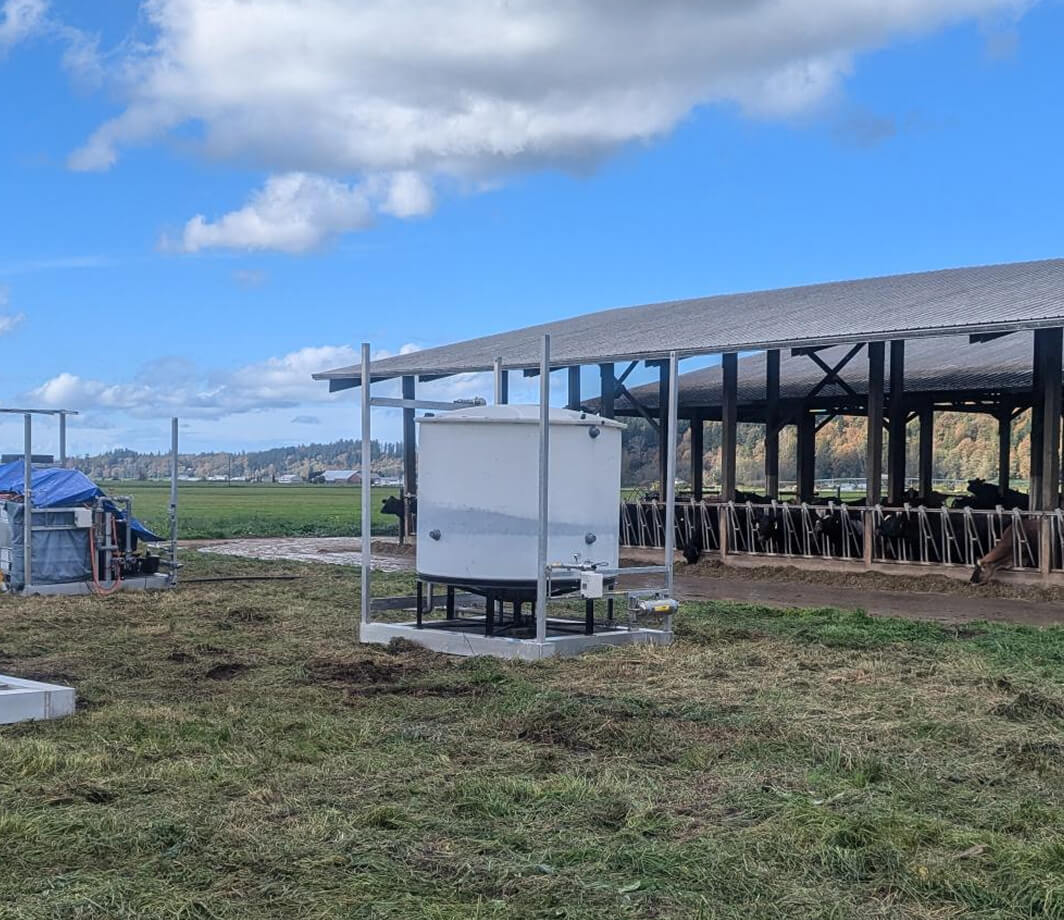Reducing Methane with
On-Farm Innovation

Transforming dairy farms into climate solutions by reducing methane and regenerating soil.
What if cow manure could help decarbonize the food supply chain? By pairing
Windfall Bio
’s methane-eating microbes with Whole Foods Market’s network of farms, methane emissions are transformed into nutrient-rich fertilizer — closing the loop on waste while reducing one of agriculture’s most potent greenhouse gases.

Windfall’s nature-based solution to capture methane using natural microbes known as mems
Whole Foods Market launched two on-farm pilots with Windfall Bio’s methane reduction technology (methane is a potent greenhouse gas, up to 86 times more powerful than carbon dioxide) at Whole Foods Market suppliers, Darigold and Straus Family Creamery. During the pilots, cow manure is collected and placed into a lagoon, and the emitted gas is redirected through an aerated compost pile, where Windfall’s methane-eating microbes consume the methane and trap nitrogen, producing organic fertilizer that can be reused on-farm.
Whole Foods Market, alongside The Climate Pledge Fund — a $2 billion venture investment program that targets companies operating in hard-to-abate sectors — supported Windfall’s advancement, by generating funding and connecting them with key suppliers.


“Our collaboration with Amazon’s Climate Pledge Fund and Whole Foods Market showcases a powerful model for CPG companies, major food retailers and their suppliers to transform wasted methane emissions into valuable resources while decarbonizing their supply chains. By harnessing the power of nature, together, we’re turning methane mitigation into an opportunity to drive efficiency for a more sustainable agriculture industry.”
Our Impact
Report
Read our 2024 Impact Report, which highlights all the ways we’re working to build a more sustainable, more equitable food system for generations to come.

